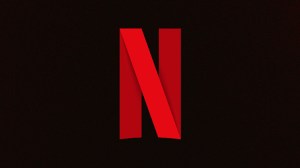The comics direct market had already been dealing with a lot of unexpected challenges and changes due to the ongoing coronavirus pandemic, but just as things were starting to get back to something approaching normal with Diamond Comic Distributors resuming shipments to local comic book retailers, the industry was rocked by a major bombshell. On June 5th, DC informed retailers that they had ended their distribution deal with Diamond after 25 years. It’s a move that stunned retailers, creators, and fans alike — and inspired a variety of reactions as well. For some, DC’s move away from Diamond is a welcome one as it may signal the end of Diamond’s functional monopoly over the direct market. For others, however, DC’s move comes with a lot of questions, a number of concerns, and even some serious complaints about what the real impact of the decision will be and who will be the winners and losers in DC’s new distribution plan. With that in mind, we’re taking a look at what the impact of DC’s decision to part ways with Diamond by examining some of the challenges it poses as well as where it has the potential to change things going forward in an attempt to figure out what it all means for the comics direct market.
Videos by ComicBook.com
First, some basics. On June 5th, DC sent an email to comic book retailers informing them that the company had ended their relationship with Diamond and that Diamond would only be fulfilling orders placed through the June 1st Final Order Cut-Off.
“This change in DC’s distribution plans has not been made lightly and follows a long period of thought and consideration,” the publisher assured direct market retailers. “The change of direction is in line with DC’s overall strategic vision intended to improve the health of, and strengthen, the Direct Market as well as grow the number of fans who read comics worldwide.”
Replacing Diamond for DC’s needs are Lunar Distribution and UCS. Penguin Random House will help with graphic novels.
“After 25 years, DC and Diamond Comic Distributors are ending their long-standing relationship,” a DC representative told ComicBook.com in a statement. “Moving forward, comic book retailers can obtain their DC books from Penguin Random House, or their books and periodicals through Lunar or UCS comic book distributors. DC continues to be committed to providing the Direct Market with best in class service and the fans with the world’s greatest comic books.”
While many comics fans initially celebrated DC’s decision, citing long-standing issues with Diamond — some of which we’ve previously touched on in our examination of the direct market prior to COVID-19 (which you can read here) — the concerns soon began to surface. For retailers, one of the major concerns has been the distributors DC has turned to, Lunar and UCS. Both Lunar and UCS aren’t simply new distribution companies; both are owned by comic book retailers. Lunar Distribution is owned by DCBS, a discount comic book retailer headquartered exclusively online while UCS is owned by New York’s Midtown Comics. For a number of retailers, this is concerning because, by nature of the details regarding sales and demand required to place orders with distribution companies, local retailers are essentially handing over sensitive information to their competition. While there is nothing to indicate that Lunar or UCS are crossing their business streams with their retailer counterparts as it were, it does bring up the concern that DCBS and Midtown could be at an unfair advantage over their competition.
Another common concern for retailers has been shipping costs. One advantage of Diamond’s monopoly in comics distribution was that retailers had essentially a one-stop-shop for ordering their comics inventory. That meant, generally, they paid for one shipping charge for their orders. DC’s move away from Diamond, however, changes that. If a shop wants to carry, for example, Image, Marvel, and DC Comics, they will have to place two separate orders and pay two separate shipping charges. For an industry made up almost entirely of small businesses who are already struggling due to the financial impact of the COVID-19 pandemic, additional shipping charges eat into already narrow profits, meaning that shops will have to sell even more comics to cover their fees.
There were also concerns that DC’s move could lead to another Heroes World Distribution scenario — a situation that nearly caused the collapse of the entire North American comic book market in the 1990s. In 1994, when the direct market saw the use of multiple comics distributors, Marvel Comics bought Heroes World to act as their exclusive distributor. At the time, Heroes World was the third-largest comics distributor in North America after Diamond and Capital City Distribution. The move reduced the market share of other distributors by more than a third and without Marvel books, distributors saw a massive, sudden reduction of their sales volume, even as operating costs did not change.
The situation prompted Diamond owner Steve Geppi and Capital City owners John Davis and Milton Griepp to each attempt to negotiate with the other comic publishers for their respective companies to be the exclusive distributors for their products. By the time negotiations ended and the dust settled, only Diamond remained, which meant when Heroes World failed and ultimately went out of business in 1997, Marvel had only one distributor to return to, thus cementing Diamond’s position of monopoly over the direct market.
While DC’s move isn’t exactly the same situation — if anything, the introduction of Lunar and UCS as alternatives distributors could break Diamond’s monopoly should publishers choose to negotiate deals allowing them to distribute through all three options — it’s certainly one that will impact retailers in a big way and potentially cause the collapse of the direct market, not by breaking down distribution chain, but by nickel-and-diming retailers out of business.
While those challenges are big ones, that doesn’t mean that there isn’t potential for DC’s departure from Diamond to be a turning point for the direct market in a positive way. For starters, Diamond has a long history of notable issues when it comes to the delivery of product. One concern that came up a number of times when we spoke with comic book retailers for our deep dive into the impact of the pandemic was that even under normal circumstances, Diamond often delivered orders that were late, incomplete, or severely damaged, and in some cases, weren’t particularly efficient or timely with the return process. Prior to DC’s announcement, retailers had no choice but to go to Diamond for their books despite these issues, but if other publishers do add Lunar and UCS as distributors, in addition to Diamond, retailers would have a choice to “vote with their dollar” as it were and take their business to others. If that were to happen, it would be a move that would end Diamond’s functional monopoly over the direct market, something that in turn could lead to more beneficial terms for retailers.
There is also the idea that DC’s move to Lunar and UCS lays the groundwork for protection for the direct market should Diamond shut down. One of the things that the pandemic shed a light on is just how dependent the direct market is on Diamond. When the company temporarily shut down in March, that was it for comics at the time. The market ground to a halt, leaving local retailers to get creative and, where possible, find novel ways to remain in business. For many, that looked like a push for the sale of on-hand stock, including back issues and other merchandise. While the pandemic is itself a unique scenario, it does open the door for questions about what happens if Diamond were to fold.
The idea that Diamond could be on shaky ground is one that hasn’t gone unnoticed, either, with some in the industry questioning just how financially sound Diamond actually is. Former DC president Diane Whelan Nelson suggested in a reply to Comics Beat’s Brian Hibbs that Diamond may not even be solvent.
“I’m afraid I’ve not been privy to this recent decision. I can say purely as a private individual that Diamond has, for a long time, been unwilling or unable to modernize and support and grow the biz as needed for a healthy direct channel,” Nelson wrote. “And may not even be solvent. It would be imprudent for any publisher to not have a distribution contingency plan.”
Should there ever be another situation in which Diamond is unable to operate, be that for any reasons and not just financial ones, DC’s move to new distributors means that there is at least an existing avenue for other publishers to do the same, thus ensuring that shops could continue to order and receive product. Given how the pandemic-related Diamond shutdown created major challenges for local retailers, having some sort of back up plan, if you will, is important and if Lunar and UCS are successful for DC, they certainly could become that plan for others, too.
Ultimately, DC’s decision to cut ties with Diamond is one that is neither all bad nor is it all good. There are real issues that will need to be examined and resolved when it comes to the addition of Lunar and UCS as distribution options for comics. DC opting to jump ship so quickly and currently being the only publisher to do so certainly not only feels like a case of “leap and hope the net appears,” but is also proving to not be a straightforward process – it was recently announced that DC and Diamond would temporarily extend their partnership at least in terms of some aspects of their relationship. There are, clearly, a lot of things to work out. But for all of the issues, there are also opportunities for the situation to be of real benefit for the most important player in the game who have had plenty of challenges with the old status quo well before the pandemic flipped everything upside down: retailers. The direct market has long needed a change. This has simply forced the issue.








